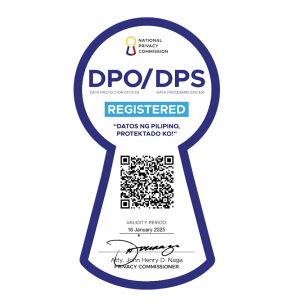Master in Business Administration
Program Description
The Master in Business Administration (MBA) is a Non-Thesis Program, a 33-unit graduate-level program that provides students with a comprehensive education in business and management. The program typically covers a wide range of business-related subjects, aiming to develop the skills and knowledge necessary for leadership roles in various industries.
Program Structure
- Foundation Courses: The MBA program is a 15-month (5-term trimester) graduate degree that typically begins with foundation courses covering fundamental business disciplines. These may include subjects like social responsibility and good governance, methods of research, and managerial statistics and data analysis.
- Professional Courses: After completing foundation courses, students must take professional courses that include financial management, marketing management, human resource management, and strategic management.
- Elective Courses: Students can choose one elective course based on their interests and career goals after completing professional courses. Elective options might include more specialized topics like entrepreneurial management, organizational behavior, and project management.
- Experiential Learning: Many MBA programs incorporate experiential learning components, such as case studies, simulations, internships, and consulting projects. These experiences aim to apply theoretical knowledge to real-world business challenges.
- Capstone: After successfully passing the comprehensive examination, students must complete a capstone project: Capstone 1– Proposed Topic Study and Capstone 2– Final Paper Presentation to be enrolled in two (2) consecutive terms. This project often involves solving a complex business problem or conducting original research in an area of interest. Students have the option to do a Case Study, or Strategic Management Paper based on their field of interests or preferences.
Career Outcomes
An MBA is widely recognized as a qualification that opens doors to various career opportunities, including executive and managerial positions in corporations, entrepreneurship, consulting, finance, marketing, and more. Some MBA graduates pursue academic careers, becoming professors and contributing to business education.
Value Proposition
- Applied Research: MBA programs emphasize applied research, allowing students to bridge the gap between academic theory and real-world business challenges.
- Executive Network: The program provides a valuable network of experienced professionals and academics, facilitating collaboration and knowledge exchange.
- Leadership Development: MBA programs focus on developing advanced leadership skills, strategic thinking, and decision-making capabilities.
- Contribution to Business Knowledge: Graduates contribute to advancing business knowledge by conducting original research that addresses practical issues organizations face.
Student Outcomes
Graduates of master’s in business administration are expected to:
- Develop Leadership Skills: MBA programs aim to cultivate effective leadership and management skills.
- Acquire Analytical and Critical Thinking: Students learn to analyze complex business situations and make informed decisions.
- Enhance Communication Skills: Effective written and verbal communication is emphasized to prepare students for leadership roles.
- Understand Global Business: Given the global nature of business, MBA programs often include an international perspective, preparing graduates for global leadership roles.
Curriculum Summary
| Components | Number of units |
| Foundation Courses | 9 |
| Professional Courses | 15 |
| Elective Course | 3 |
| Written Comprehensive Examination | 0 |
| Capstone Courses | 6 |
| Total Course Requirements: | 33 |
